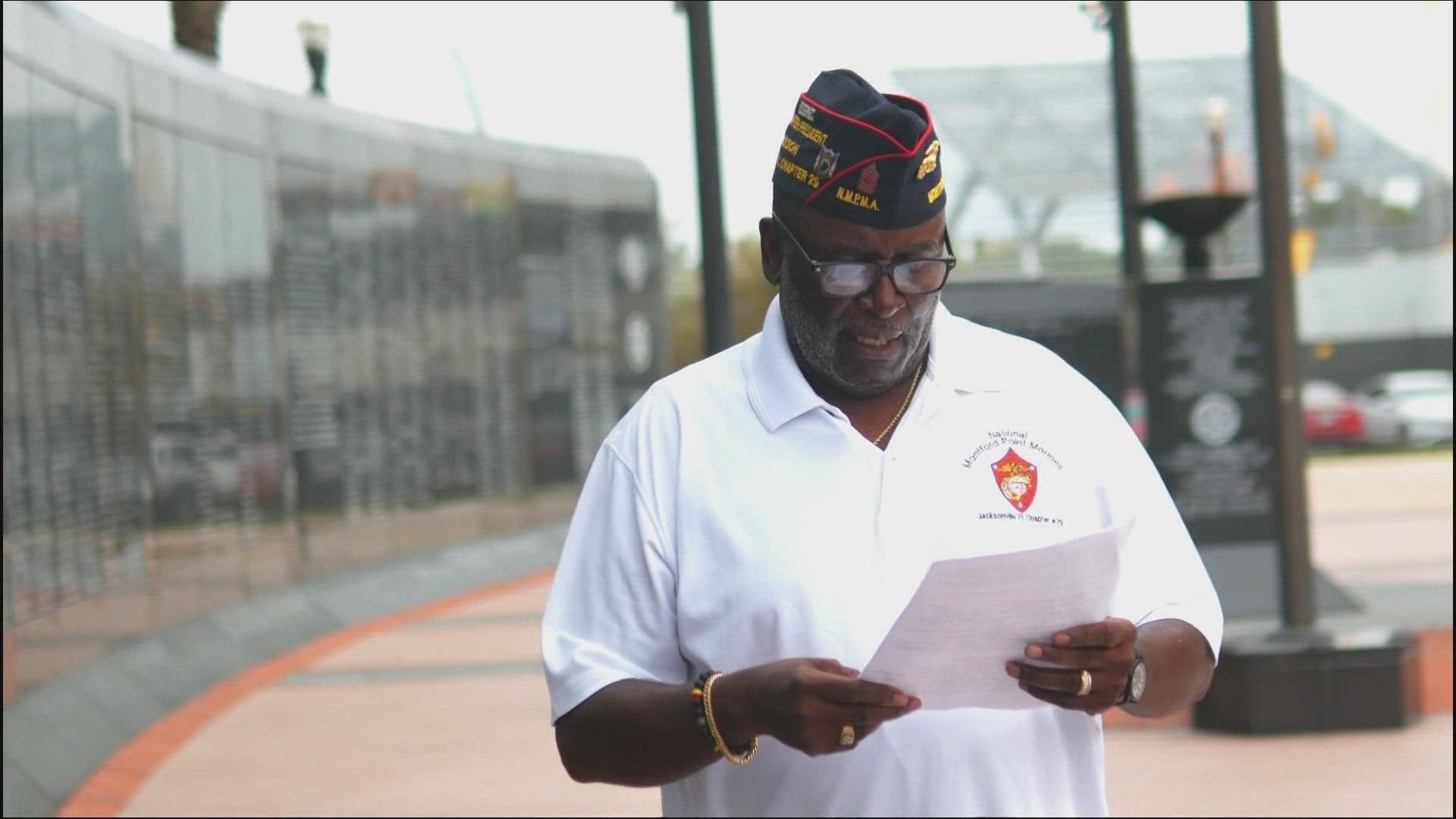JACKSONVILLE, Fla. — The first Black Marines in the United States Marine Corps became known as the Montford Point Marines.
They trained in segregated camps outside of Jacksonville, North Carolina. Among that group of men was George McIvory, 97. McIvory along with retired master sergeant, Ron Jackson shares their story of service and bravery as Springfield Middle School student, Jackson Sanders, 12 brings it all to life in Vivid Hues; Stories of Black History.
20,000 Black men aiming to earn the title of Marine from 1942 to 1949 would endure the unimaginable during basic training at Camp Montford Point. They were taught rigid lessons with tough drill instructors and racial prejudice in a swampy wildlife-ridden forest area, in the New River.
McIvory shared the words of Alpha Gainous, his best friend, a fellow Montford Point Marine who died on April 11, 2022, "Standing there, with blood in our boots but scared to bob or weave because we may fail and disgrace our families. Scared to inhale because if we inhaled-mouthful of flies, mosquitoes."
McIvory too recalls the cruelty experienced at the only Marine training center at the time for his kind, a portion of mankind thought to be incapable and unworthy. They were fighting two wars; one overseas and another at home.
“We fought to protect a nation that didn't care to protect us,” McIvory said while reading a passage about the Montford Point Marines. “We were not granted basic civil rights.”
Initially delegated to serve in non-combat support roles overtime Black Marines picked up guns to fight invasions during war, some came to be known as the best gunners in the Marine Corps.
By July of 1948 President Harry Truman penned an executive order requiring the desegregation of the armed forces. Montford Point was deactivated as a recruit training depot in 1949.
On Wednesday November 23, Vivid Hues; Stories of Black History salutes Historically Black Colleges and Universities. Norma White, the 25th International President of Alpha Kappa Alpha Sorority, Inc and the first female member of the famed Florida A & M University Marching 100 Band lends her powerful voice to share the history of HBCUs.

